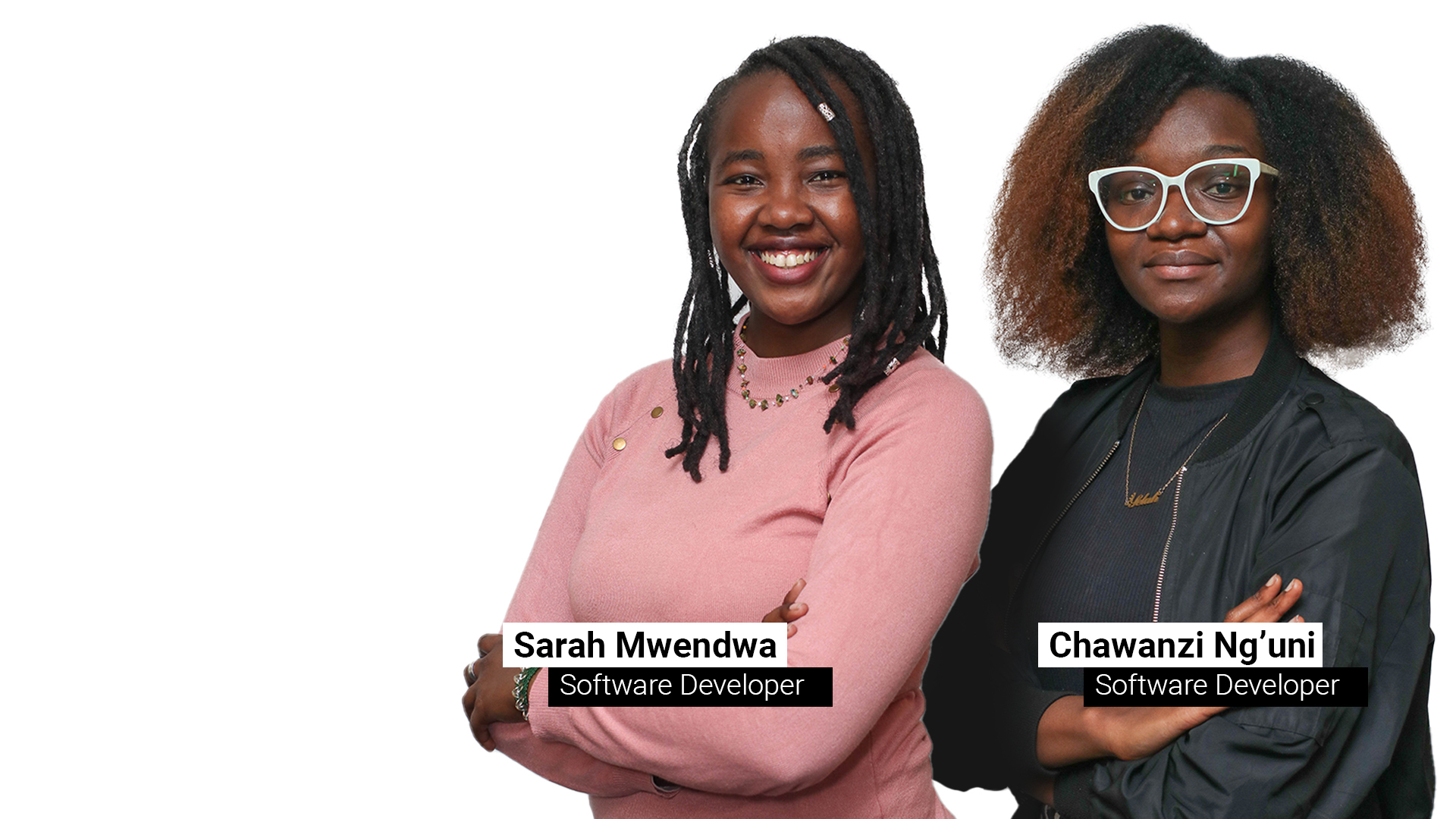
Tech and innovation have been steadily growing in all sectors, and while there has been progress toward diversity and inclusion, it is still primarily dominated by men.
Studies conducted by UNESCO reveal that women in the tech industry constitute only 28% of professionals in the sector worldwide and just 30% in Sub-Saharan Africa. It is for this reason that this year’s Women’s day theme, ‘‘DigitALL: Technology and Innovation for Gender Equality” proves to be timely as it not only shines a much-needed light on what needs to be done in the world of tech but also allows us to celebrate what women in Tech and Innovation are already doing.
As we commemorate women’s month, we take the time to hear experiences and insights from the women in tech themselves. We share success strategies and pointers from women in technology on how to navigate the world of tech and innovation.
Meet Sarah Mwendwa and Chawanzi Ng’uni, two female junior software developers at BongoHive Consult Tech.
They work closely together on projects, sharing ideas and collaborating to create great software that makes a difference in people’s lives. The duo explain that they are happy to have a supportive team that encourages them to explore their passions and learn from each other.
Chawanzi enjoys UI/UX and front-end development, while Sarah is a proud member of the “cult” of back-end developers.
For this year’s women’s month, we asked the duo to share some thoughts on the ins and outs of navigating the world of tech as young women.
When asked about how young women can be empowered to take up roles in tech, Sarah and Chawanzi agree that mentorship and sponsorship opportunities are essential for empowering women in the industry as they offer numerous benefits that can help women overcome challenges they may face in their careers.
They highlight that one of the most significant benefits is the opportunity to build a network of like-minded professionals in the industry. They further note that networks can provide community, support, and connection for women who may feel isolated or underrepresented in their workplace.
‘’Mentors can provide guidance and advice on navigating the industry, from career development to workplace culture. They can share their experiences and insights, which can help women avoid common pitfalls and make informed decisions.’’ Sarah shares.
The developers explain that mentors and sponsors can help women build confidence in their skills and knowledge to tackle issues such as imposter syndrome which leads to a lack of confidence in their abilities. Thus mentors and sponsors can provide encouragement, feedback, and constructive criticism to help women overcome these barriers.
They further add that mentorship programs provide women with the support, resources, and connections they need to overcome these obstacles and succeed in the industry. Mentorship and sponsorship programs can also help break down barriers and cultural appropriations that women in tech may face, such as bias, discrimination, and a lack of opportunities.
When it comes to challenges that women face in leadership positions, Sarah and Chawanzi highlight a few reasons that women in Africa face:
- Cultural myths and stereotypes: Firstly, women often have to contend with cultural myths and stereotypes that view women as inferior to men and discourage them from taking on leadership roles. This can make it difficult for them to assert their authority and be taken seriously.
- Limited access to education and training: Additionally, limited access to education and training can make it difficult for women to acquire the skills and knowledge needed to succeed in leadership positions.
- Lack of support networks: Lack of support networks can make it challenging for women to break into leadership positions and find advocates who can help them advance in their careers.
‘’However, women are resilient and resourceful. They can take proactive steps to overcome these challenges by building strong support networks, seeking out mentors and advocates, and acquiring the necessary skills and knowledge to succeed in their roles. ‘’ relays Chawanzi.
What can be done to break barriers in the tech world?
The Tech Consultants point out the collaborative and communicative nature of women, they advise women to leverage collaboration as it is a valuable skill in a team-based environment. Thus, working together to solve complex problems and drive innovation forward.
Chawanzi reveals that women often have a strong, persevering spirit. She explains that although women in tech and innovation have faced numerous challenges and obstacles in the industry, they are also making significant strides in breaking down stereotypes and making a positive impact. Women can leverage their unique strengths and perspectives to drive innovation forward and create positive change in the industry.
As young women, we asked them what they feel industry leaders can do to make Tech a more inclusive environment for upcoming female professionals.
Sarah gives her perspective, ”Organizations have a vital role to play in creating a more inclusive and supportive environment for women in tech and innovation. By implementing policies and practices that promote diversity and inclusivity, prioritizing a safe and respectful work environment, and supporting women’s participation in leadership roles, organizations can foster a more balanced and diverse industry that benefits everyone.”
Sarah and Chawanzi are confident that the tech and innovation space only stands to benefit from the diverse perspectives and unique strengths that women bring to the table. By working together and supporting each other, women can continue to thrive and make a positive impact in the industry.
 BongoHive
BongoHive